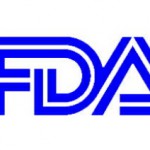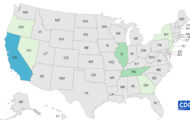Consumers groups have petitioned the FDA to restrict bisphenol A use in food packaging. The formal petition, spearheaded by Environmental Defense Fund (EDF), was filed in late January, 2022. While the FDA no longer allows BPA in infant formula packaging, it is used in many other products. The ban in infant formula packaging, in fact, was issued just because companies stopped using it, not for health concerns. Studies have shown that chemical may be problematic and could cause endocrine disruption, even though the FDA insists that the compound is safe. The petition to ask the FDA to restrict Bisphenol A use was filed because new findings from a panel of experts at the European Food Safety Authority (EFSA) indicated that harmful effects from BPA exposure "can occur at levels … [Read more...]
Does BPA Exposure Increase Blood Pressure?
A new study claims that exposure to Bisphenol A (BPA) from drinking canned beverages increases blood pressure. BPA is a chemical used to line metal cans and make plastic bottles. It has been associated with hypertension in earlier studies. This new study was a randomized crossover trial with adults age 60 hayers and older. The participants were given the same beverage in 2 glass bottles, 2 cans, or 1 can and 1 glass bottle at a time. Urinary BPA concentration, blood pressure, and heart rate variability were measured 2 hours after each beverage was consumed. Each participant visited the study site three times. Urinary BPA concentration increased after consuming canned beverages by more than 1600% compared to the concentration after drinking beverages from glass containers. Systolic … [Read more...]
Health Canada Says All Canned Food Tested for BPA Safe to Eat
Health Canada recently tested more than 400 samples of canned foods and found that they were safe to consume. The government said that BPA was not detected in 98.5% of the foods analyzed. The products tested included domestic and imported fruits, vegetables, juices, other beverages, legumes, pasta, and soups. Those products are packaged in cans treated with epoxy coatings. Low levels of BPA were found in only six of the canned food samples analyzed. The levels of the chemical in those foods did not indicate any safety concerns. BPA is permitted in food packaging materials in Canada. Other countries, such as France, have banned the chemical in food packaging based on many studies that shows it can be harmful to human health. Epoxy resins that contain BPA are added to metal cans to … [Read more...]
Early BPA Exposure Increases Prostate Cancer Risk
Food Poisoning Bulletin has been covering the story of bisphenol A (BPA), a chemical used to harden plastics, for years. Health risks associated with this chemical have been well known for some time. In fact, because of consumer pressure, all manufacturers of baby bottles have removed the chemical from their products. The FDA belatedly finalized a rule banning BPA in infant formula packaging last summer. A new study in the Journal of Endocrinology, published today, finds that BPA exposure early in life increase the risk of prostate cancer. Unfortunately, BPA is found "universally" in the umbilical cord blood of pregnant women, according to a study conducted in California last August. In the latest study, mice were implanted with human prostate stem cells from healthy males. The mice … [Read more...]
FDA No Longer Allows BPA in Infant Formula Packaging
The FDA has published a final rule amending the food additive regulations to no longer allow the use of bisphenol A (BPA) epoxy resins as coatings in packaging for infant formula. Although many consumer organizations have asked for this ban for years, the government is stressing that this action was taken "because these uses have been abandoned," and not because of health concerns. The document will be published in the Federal Register on July 12, 2013. A petition filed by Representative Edward Markey (D-MA) last year proposed to amend the regulations. Markey issued a press release stating that "this is a major victory for American families, and I join with parents in celebrating safer feeding time for their babies now that this toxic chemical will forever be banned from infant … [Read more...]
Judge Removes BPA from California’s Proposition 65 List
According to the San Francisco Chronicle, Judge Raymond Cadei in Sacramento County superior Court removed Bisphenol-A (BPA) from the state's list of reproductive toxins. In January, California EPA officials announced that they would put the chemical on the Prop 65 list of chemicals known to cause reproductive toxicity, and they did just that in mid April. Other items on the California Proposition 65 list include lead, asbestos, arsenic, and tobacco smoke. The National Resources Defense Council states that decision was based on a 2008 report by the National Toxicology Program, which found clear evidence of harm at high doses. It didn't take long for the American Chemistry Council to file a lawsuit to protest the change. That suit stated that "putting BPA on the list of harmful chemicals … [Read more...]
Maine Environmental Board Backs BPA Ban from Baby Food Containers
The Maine Board of Environmental Protection has voted to back a limited BPA ban in infant formula packaging and baby food containers in a preliminary vote this week. The Maine Department of Environment Protection (DEP) recommended at the beginning of January that BPA be phased out of infant formula packaging, but not baby food and toddler food containers. With one more vote, the ban will become law in that state. The board decided it was too difficult to set a limit on toddler food containers, so those packages will not be included in the ban. Last year, the DEP published a report considering possible replacements for BPA. BPA, or Bisphenol-A, is a very controversial chemical that is added to plastics to make them shatterproof. It's also used as a liner for cans, since acidic foods … [Read more...]
NRDC Makes To Do List For The FDA
Slowly rolling out proposed rules mandated by the Food Safety Modernization Act (FSMA) is one thing, but if the US Food and Drug Administration (FDA) really wants to show consumers that it’s serious about protecting public health, it has more work to do So says the National Resources Defense Council (NRDC), anyway. To show Americans that it has our backs, the agency needs to tackle three major threats to public health, Peter Lehner, the NRDC’s executive director, says in a recent blog post. They are: ending the use of antibiotics in livestock, banning Triclosan and protecting consumers from the use of BPA and other chemical contaminants of food. “Back in 1977, the FDA concluded that feeding antibiotics to farm animals was a threat to human health, and yet it did next to nothing to … [Read more...]
Research Finds BPA Metabolite May Cause Health Problems
New research from the University of California San Diego School of Medicine may have discovered that the molecule formed when Bisphenol A (BPA) breaks down inside the body is causing health problems. Bisphenol A is a chemical used in plastics that human beings routinely ingest. When the chemical is broken down inside the body, a molecule called MBP binds to the estrogen receptor in human cells much more strongly than BPA. According to the news release, "more than 90 percent of all Americans are believed to carry varying levels of BPA exposure." Many studies have shown associations between BPA exposure and cancer, neurological disorders including problems in early childhood development as well as memory and learning, heart disease, and reduction in the efficacy of chemotherapy. In April, … [Read more...]
FDA Bans BPA from Baby Bottles and Sippy Cups
On Tuesday, July 17, 2012 the U.S. Food and Drug Administration said that the controversial compound bisphenol A (BPA), will no longer be used to make baby bottles and sippy cups. Suzanne Struglinski, Press Secretary for Legislative Affairs at the National Resources Defense Council (NRDC), sent us the notice in the Federal Register. But the FDA decided to ban the chemical because the substance just isn't used anymore by manufacturers, not because they have decided it is unsafe. Consumer demand from parents forced corporations to stop using BPA in those products. While consumer advocates applaud this step, they want the FDA to ban BPA in all food packaging. Sarah Janssen, senior scientists for the NRDC's public health program, said, "this is only a baby step in the fight to eradicate … [Read more...]









